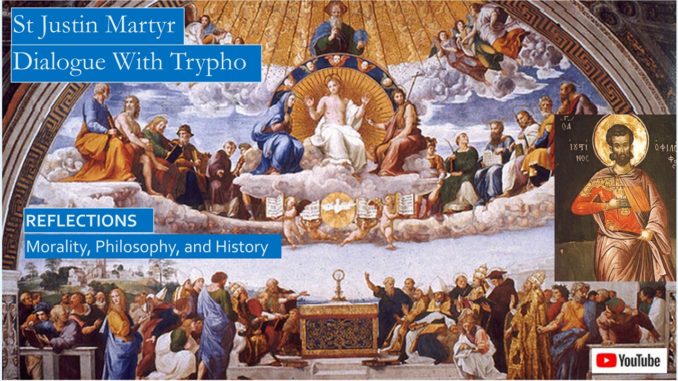
In the manner of Plato, Justin constructs a dialogue with Trypho, the Jewish philosopher, as they were walking in the Xystus, the forum at Ephesus. Trypho greets him, explaining he is a Jewish refugee from the Jewish War when the temple was destroyed, since his Socratic teacher advises him to be kind to all fellow philosophers.
Justin asks him why he needs philosophy when he can profit from Moses, his lawgiver, and the prophets. Trypho responds, “Why not? Do not the philosophers turn every discourse on God? Do not questions continually arise on God’s unity and providence? Is it not truly the duty of philosophy to investigate the Deity?” (Chapter I)[1]
St Justin Martyr Blog 1 http://www.seekingvirtueandwisdom.com/st-justin-martyr-blog-1-first-apology-to-the-emperor-2/
How do the Jewish Scriptures and Greek philosophy relate to the Good News, the Gospel of Jesus Christ? Do they conflict with the Gospel? Can Christians profitably study Jewish Scripture and Greek philosophy? These are the questions this dialogue explores, and St Justin the Martyr was one of the first of apostolic fathers to explore these issues. When you read teachings you have read many times before, remind yourself, you are probably reading the original source.
The translator’s introduction tell us that Justin was a “Gentile, born in Samaria, near Jacob’s well,” he was well-educated in Greek philosophy. The translator says the “Dialogue with Trypho is the first elaborate exposition of why we should regard Christ as the Messiah of the Old Testament,” and the first systematic attempt to counter the arguments against those Jews who deny that Christ is the Messiah. He was martyred around 165 AD, he quotes Isaiah, Jeremiah, the Torah and the Psalms extensively, and he also has many quotations from the Gospels, even at this early date before the canon was finalized.
The editor notes that many scholars doubt whether Justin was the author of the “Hortatory Address to the Greeks” in the Ante-Nicene fathers,[2] Dr. Wikipedia claims this is an anonymous work often attributed to Justin, but that the Greek writing style differs from Justin’s style, and the author is more hostile to the Greek philosophers than the actual Justin.[3]
Henry Chadwick in his history of the early Church observes that St Justin employs the Platonic “concept of the Divine Logos or Reason both to explain how the transcendent Father of all deals with the inferior, created order of things, and to justify his faith in the revelation made by God through the prophets and in Christ. The divine Logos inspired the prophets and was present in Christ. . . It is implicit in Justin’s thesis that the distinction between Father and Son corresponds to the distinction between God transcendent and God immanent.”[4] Whenever God speaks in the Old Testament, St Justin teaches us that it is the Word of God who speaks, the Divine Logos, Jesus Christ.
JUSTIN’S DIALOGUE WITHIN A DIALOGUE AND HIS CONVERSION
Justin notes that many Greeks do not believe the gods do not really pay attention to us individually and do not see the need to pray to them day and night. “They neither dread punishment nor hope for any benefit from God.” Other Greeks, including the Platonists, reason that since the soul is immortal and immaterial, they see no need for moral living since there is no weighing of the scales, no punishment, and that the “soul, since it is immortal, needs nothing from God.”
So many ancient Greeks sound quite modern, they want to be spiritual, but not religious! If you are spiritual you are your own master, nobody else can suggest to you how you should live your life. You make the rules!
Like St Augustine, St Justin was converted first to philosophy, then to Christianity. You didn’t study philosophy from books as you do today, you study under a philosopher. He first studied under a stoic philosopher, but was disenchanted because stoicism assumes there is a God, but does not seek further knowledge of God. Another philosopher was more concerned with his fees, and a Pythagorean philosopher wanted him to first study music, astronomy, and geometry. He finally found a Platonic teacher to his liking, St Justin tells us that his teacher’s “contemplation of ideas furnished my mind with wings, so in a little while I supposed I had become wise.”(Chapter II)
In a dialogue within a dialogue, Justin tells Trypho the story of his conversion while talking with a old man he meets while walking by the sea. The old man learns Justin is a philosopher, and he asks him, “Does philosophy make happiness?” He asks, what is philosophy?
Justin responds, “Philosophy is the knowledge of that which really exists, and a clear perception of the truth, and happiness is the reward of such knowledge and wisdom.”
“What do you call God?”
Justin responds, “That which always maintains the same nature,” never changing, “that indeed is God.”(Chapter III)
The old man probes deeper, asking, Can we know both what is human and divine, can we have a “thorough acquaintance of the divine and the righteousness of man?” Can mere man really know God as easily as Plato hints we can? “Can the mind of man see God at any time, if it is instructed by the Holy Spirit?”
Justin responds, “Plato indeed says that the mind’s eye is of such a nature that when our mind is pure we may see that very Being itself, who is the cause of all our mind sees, having no color, no form, no greatness, nothing which the bodily eye can perceive, that it is beyond all essence, unutterable and inexplicable, alone honorable and good, coming suddenly into souls who are well dispositioned, on account of their affinity to and desire of seeing Him.”
The old man asks, “Do the souls all living things comprehend God? Or are the souls of men of one kind and the souls of horses or asses of another kind?”(Chapter IV)
The old man and Justin then explore the platonic concept of salvation and the soul. The ancient Greeks had a different concept of the soul than we do. Aristotle said that all living things have a soul, a life force, and that plants had the most primitive type of soul. Animals have a higher type of life force or soul, they are animated, they can move where they want to go. Men and women have the highest type of soul, not only are they animated, they can also think and converse.(Chapter V)
What about life after death? The ancient Greeks had a glum view of the underworld, it was a place where all souls, good and evil, flitted about in Hades. In the Odyssey the hero Odysseus visited Hades to talk to the dead, he poured blood offerings so the shades could drink up enough life force to be able to converse. On the other hand, Plato believed in reincarnation. In Book X of the Republic Socrates describes a vision of the afterlife where souls are directed to be reborn according to their tendencies, many of the Greek heroes are reborn as beasts of prey, King Agamemnon of the Iliad choosing to be reborn as an eagle, and animal souls are either reborn as other animals or sometimes as men. The old man and Justin concur that this makes no sense, for animals or anyone else have no conception they are being punished or rewarded in their reincarnation, or that they are even being reincarnated.
They discuss the nature of the soul, “to live is not its attribute, as it is God’s, and the soul is not forever bound to the body,” and at death “the soul leaves the body and the man exists no longer; even so, whenever the soul must cease to exist, the spirit of life is removed from it, and there is no more soul, but it goes back to the place from when it was taken.”
What the old man is telling Justin is that the soul of man is not like the essence of God, the soul of man is not unbegotten, that God creates both men and their souls, and that the world is not eternally existing as the ancient Greeks thought, but that God created and has the power to destroy the world and man and man’s soul.(Chapter VI) Whether he is saying that the souls of certain evil men are destroyed is hard to say, as is the case with many ancient works we can never be totally certain that the text has not been corrupted during copying. Justin quotes the Book of Daniel but not Revelation, whether the Book of Revelation was widely circulating or whether Justin read it is hard to say.
Justin asks the old man whether he should employ a teacher. The old man tells him that long before the esteemed philosophers there were far more ancient prophets, “who spoke by the Divine Spirit, who foretold events that would take place.” “They alone both saw and announced the truth to men, neither reverencing nor fearing any main, nor influenced by glory, but speaking alone those things alone which they saw and heard, being filled with the Holy Spirit.” They do not need to offer proofs of the truth as philosophers feel compelled to do, because they were witnesses to the truth they experienced, and their truth is worthy to be believed, since “they glorified the Creator, the God and Father of all things, and proclaimed His Son, the Christ sent by Him.” The old man ends his exhortation, “pray that the gates of light may be opened to you, for these things cannot be perceived or understood by all, but only by the man to whom God and His Christ have imparted wisdom.”(Chapter VII)
St Justin recounts that he never saw the old man again, but that after he left “straight away a flame was kindled in my soul; and a love of the prophets, and of these men who are friends of Christ, possessed me, and while his words revolved in my mind, I found this philosophy alone to be safe and profitable.”
For St Justin the Martyr, philosophy and Christianity are not enemies of each other, they differ only in degree, both seek wisdom and truth, except that Christianity seeks wisdom and truth through prayer and the assistance of the grace of God.
St Justin encourages Trypho, “If you are eagerly looking for salvation, and if you believe in God, become acquainted with the Christ of God, and after being baptized, live a happy life.”(Chapter VII)[5]
[1] St Justin Martyr, “Dialogue With Trypho,” In the Ante-Nicene Fathers, Volume 2, (Boston: Hendrickson Publishers, 1994, first published 1885), p. 194.
[2] “Introductory Note to First Apology of Justin Martyr,” Ante-Nicene Fathers, Volume 2, pp. 159-161.
[3] https://en.wikipedia.org/wiki/Exhortation_to_the_Greeks
[4] Chadwick, “Justin and Irenaeus,” in “Early Church History,” (New York: Dorset Press, 1967, 1986), p. 77.
[5] St Justin Martyr, “Dialogue With Trypho, pp. 194-198.

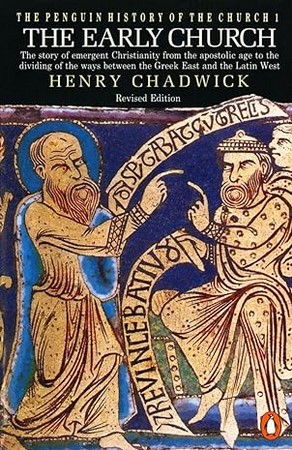
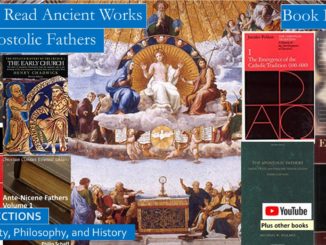
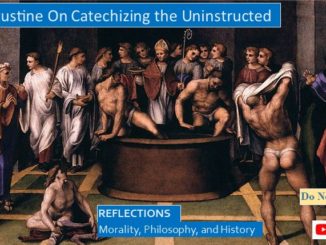
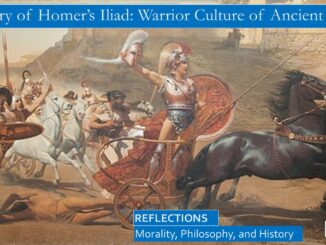
5 Trackbacks / Pingbacks